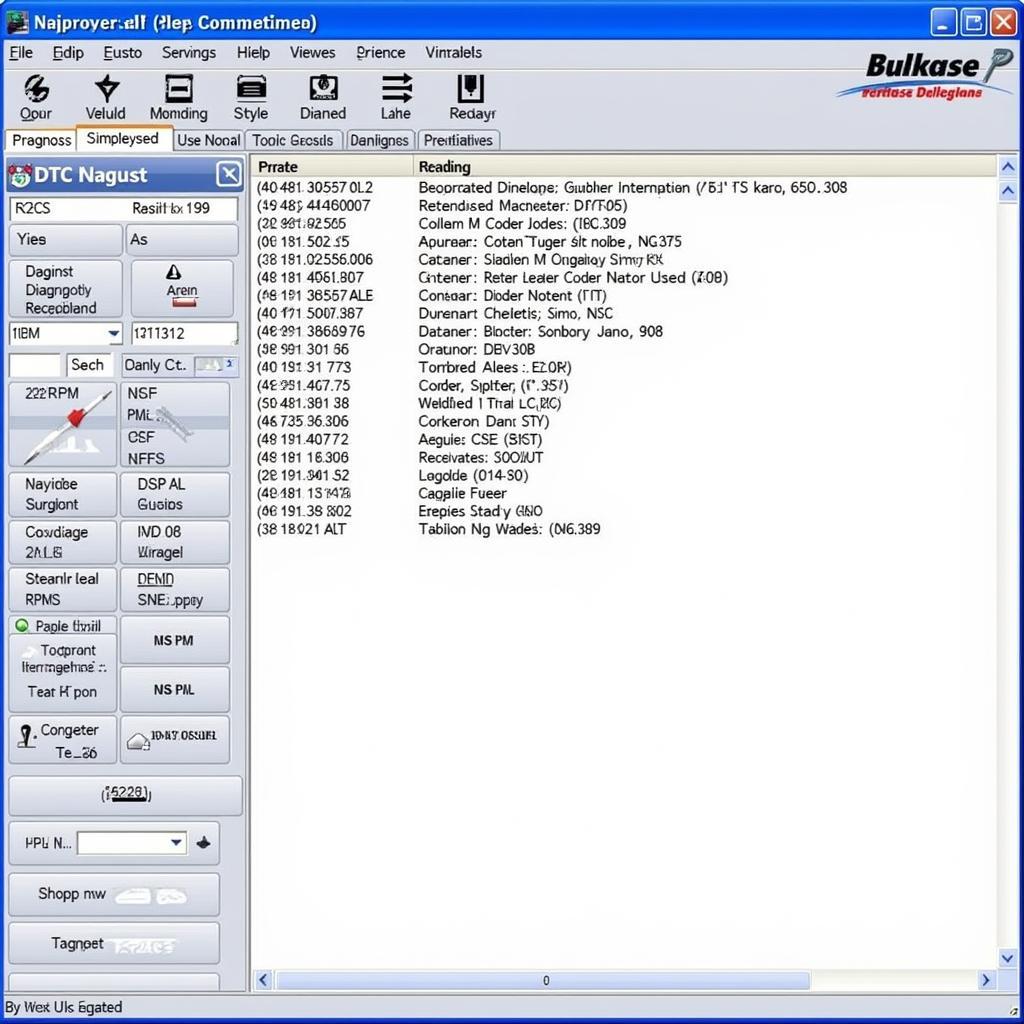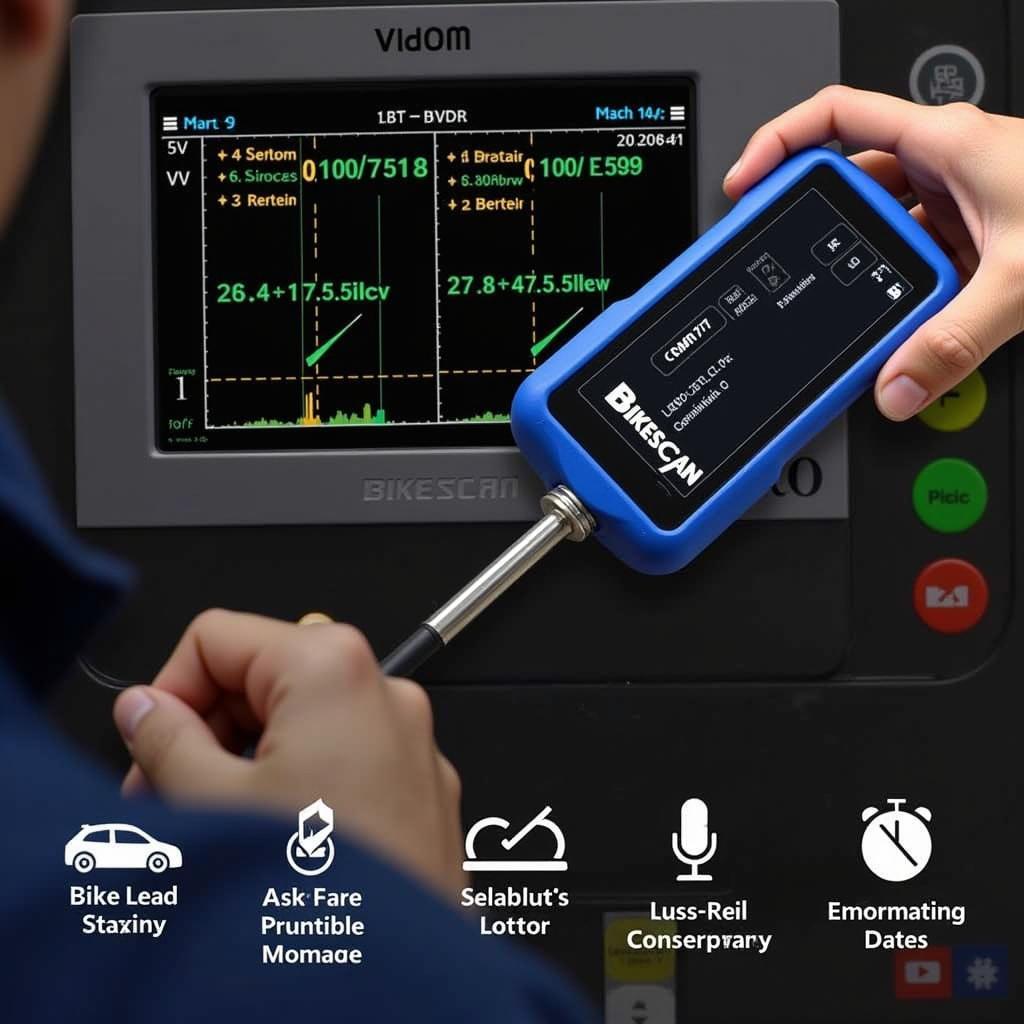The Toshiba Enterprise Hard Disk Drive Diagnostic Tool is crucial for identifying and resolving hard drive issues, ensuring optimal performance and preventing data loss. Whether you’re a seasoned IT professional, a car repair technician, or a car owner looking to troubleshoot a hard drive problem, understanding the right diagnostic tools is essential. This guide will delve into the world of Toshiba enterprise hard drive diagnostics, offering practical advice and insights to help you navigate this complex landscape.
Understanding the Importance of Hard Drive Diagnostics
In the automotive world, hard drives are increasingly used in infotainment systems, navigation, and even some advanced driver-assistance systems (ADAS). Just like in a computer, these hard drives can malfunction, leading to frustrating problems like system crashes, slow performance, or data corruption. Using a Toshiba enterprise hard disk drive diagnostic tool can help pinpoint the exact issue, saving time and money on unnecessary repairs. These tools provide a deep dive into the health of your hard drive, going beyond the surface-level checks that most standard automotive diagnostic tools offer.
Why Choose a Toshiba Specific Tool?
Toshiba hard drives, known for their reliability, are frequently found in enterprise applications and, increasingly, in vehicles. A Toshiba-specific diagnostic tool is designed to interact optimally with these drives, providing more detailed information and more accurate diagnoses than generic tools. They are often able to access proprietary features and data within the Toshiba drive, providing a more comprehensive analysis.
Types of Toshiba Enterprise Hard Disk Drive Diagnostic Tools
There are various diagnostic tools available, ranging from free software utilities to advanced hardware-based solutions. Choosing the right tool depends on your specific needs and technical expertise.
- Software Utilities: These are readily available online, often free of charge, and provide basic diagnostic functionalities like checking for bad sectors, SMART (Self-Monitoring, Analysis, and Reporting Technology) status, and performing surface scans.
- Hardware-based Tools: These tools offer more advanced diagnostic capabilities, allowing for deeper analysis and even some repair functionalities. They are typically more expensive but provide a more thorough assessment of the drive’s health.
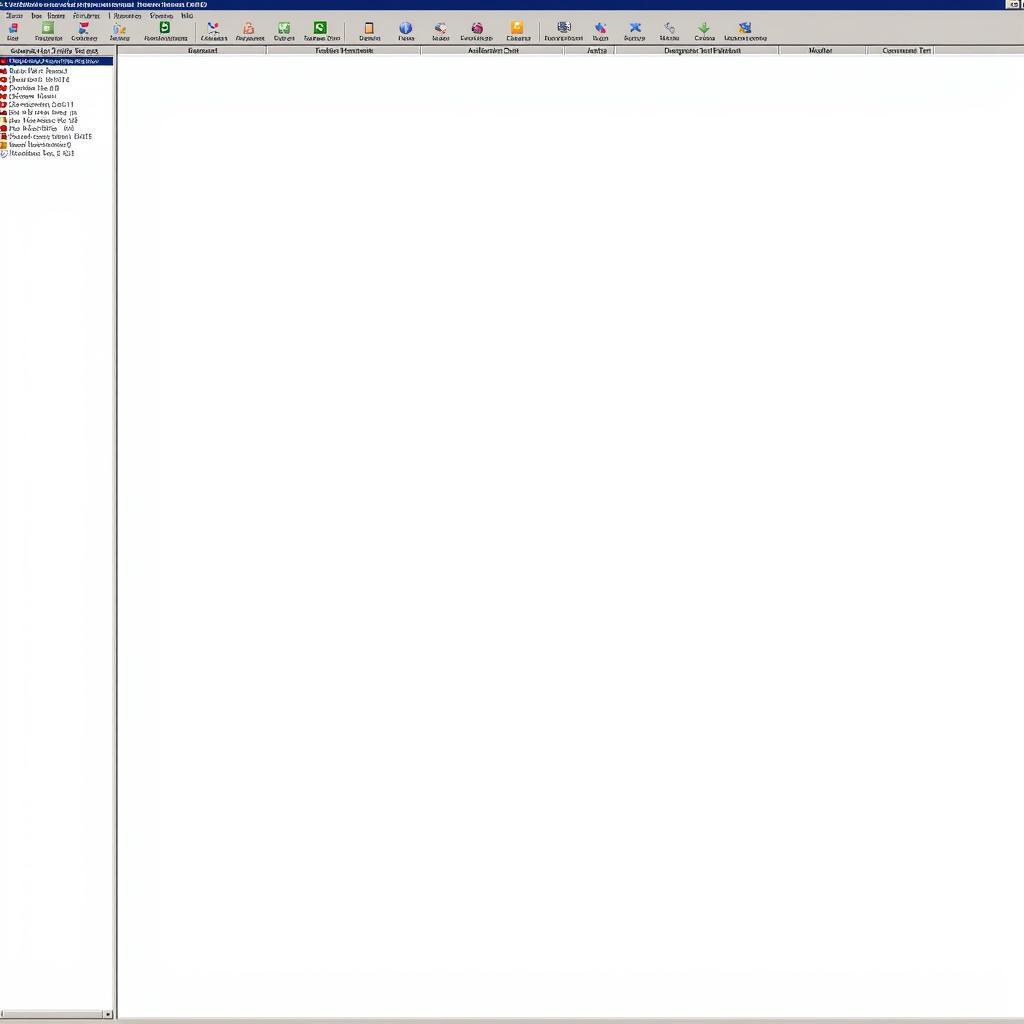 Toshiba Enterprise HDD Diagnostic Software
Toshiba Enterprise HDD Diagnostic Software
How to Use a Toshiba Enterprise Hard Disk Drive Diagnostic Tool
The process of using a diagnostic tool varies depending on the specific software or hardware you’re using. However, some general steps apply:
- Identify the Correct Tool: Ensure the tool is compatible with your specific Toshiba hard drive model.
- Download and Install (if software): Follow the manufacturer’s instructions for installation and setup.
- Connect the Drive (if hardware): Connect the hard drive to the diagnostic hardware according to the provided instructions.
- Run the Diagnostic Test: Select the appropriate test based on the suspected issue. Common tests include SMART status checks, surface scans, and error logs.
- Interpret the Results: Analyze the results provided by the tool to identify the underlying problem. Consult the tool’s documentation or seek expert advice if needed.
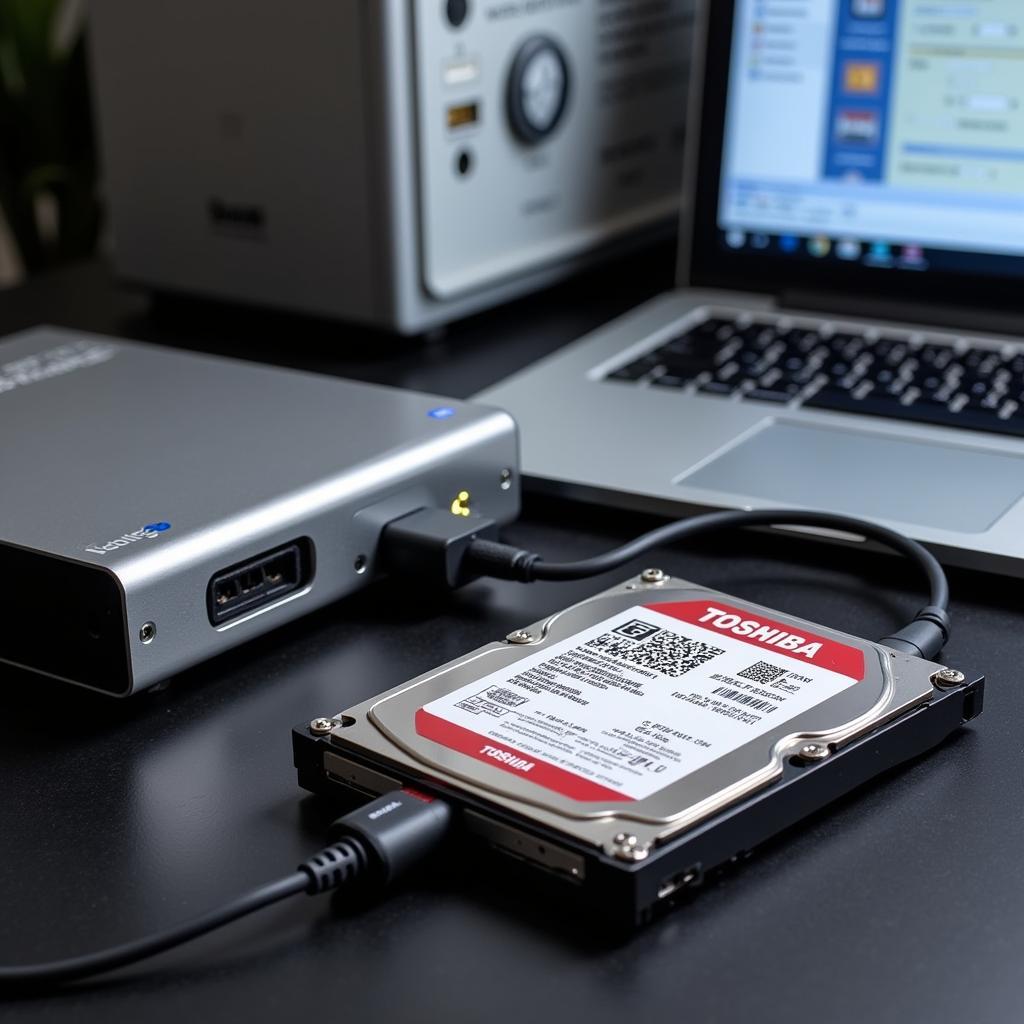 Toshiba Enterprise HDD Connected to Diagnostic Hardware
Toshiba Enterprise HDD Connected to Diagnostic Hardware
What if the Diagnostic Tool Reports an Error?
If the diagnostic tool identifies an error, the next step is to determine the severity and potential solutions. Minor errors might be resolved with software utilities, while major hardware failures may require drive replacement. Remember to always back up your data before attempting any repairs.
“Regularly checking your hard drives with a diagnostic tool can prevent major problems down the line,” says John Miller, Senior Automotive Systems Engineer at Future Auto Solutions. “It’s like a regular check-up for your car, preventing small issues from becoming big headaches.”
Troubleshooting Common Hard Drive Issues
- Slow Performance: Could be due to fragmentation, bad sectors, or failing hardware.
- Data Corruption: Can be caused by bad sectors, viruses, or power surges.
- System Crashes: Might indicate a serious hardware failure or operating system error.
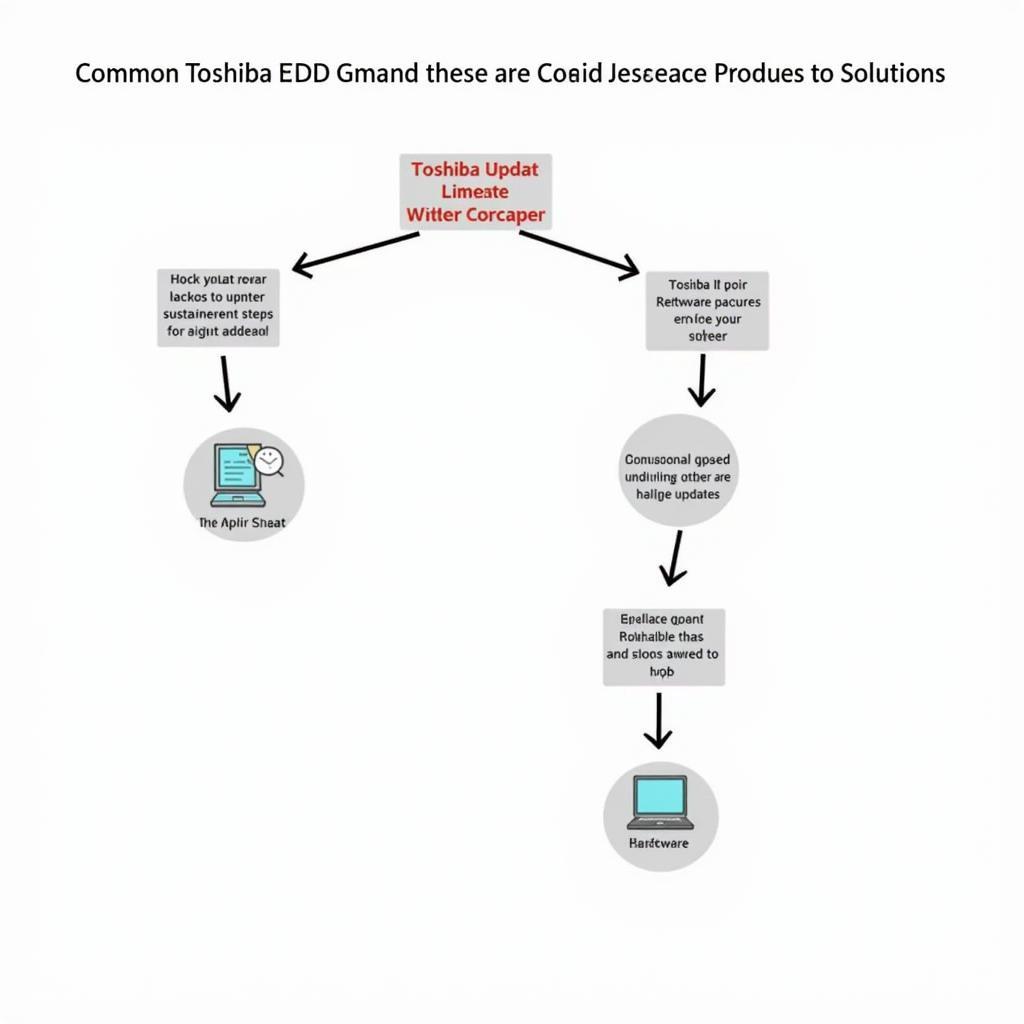 Toshiba HDD Troubleshooting Chart
Toshiba HDD Troubleshooting Chart
“Don’t panic if you encounter a hard drive issue,” advises Sarah Chen, Lead Technician at AutoTech Diagnostics. “A good diagnostic tool can often pinpoint the problem, allowing for a targeted solution.”
Conclusion
The Toshiba enterprise hard disk drive diagnostic tool is an invaluable asset for anyone working with these critical components. From identifying minor errors to diagnosing major failures, these tools empower you to take control of your hard drive health. Regular use of a diagnostic tool can significantly extend the life of your hard drives and prevent costly data loss. For expert advice and assistance with your automotive diagnostic needs, contact ScanToolUS at +1 (641) 206-8880 or visit our office at 1615 S Laramie Ave, Cicero, IL 60804, USA. We can guide you through the process and help you choose the right tools for your specific needs.
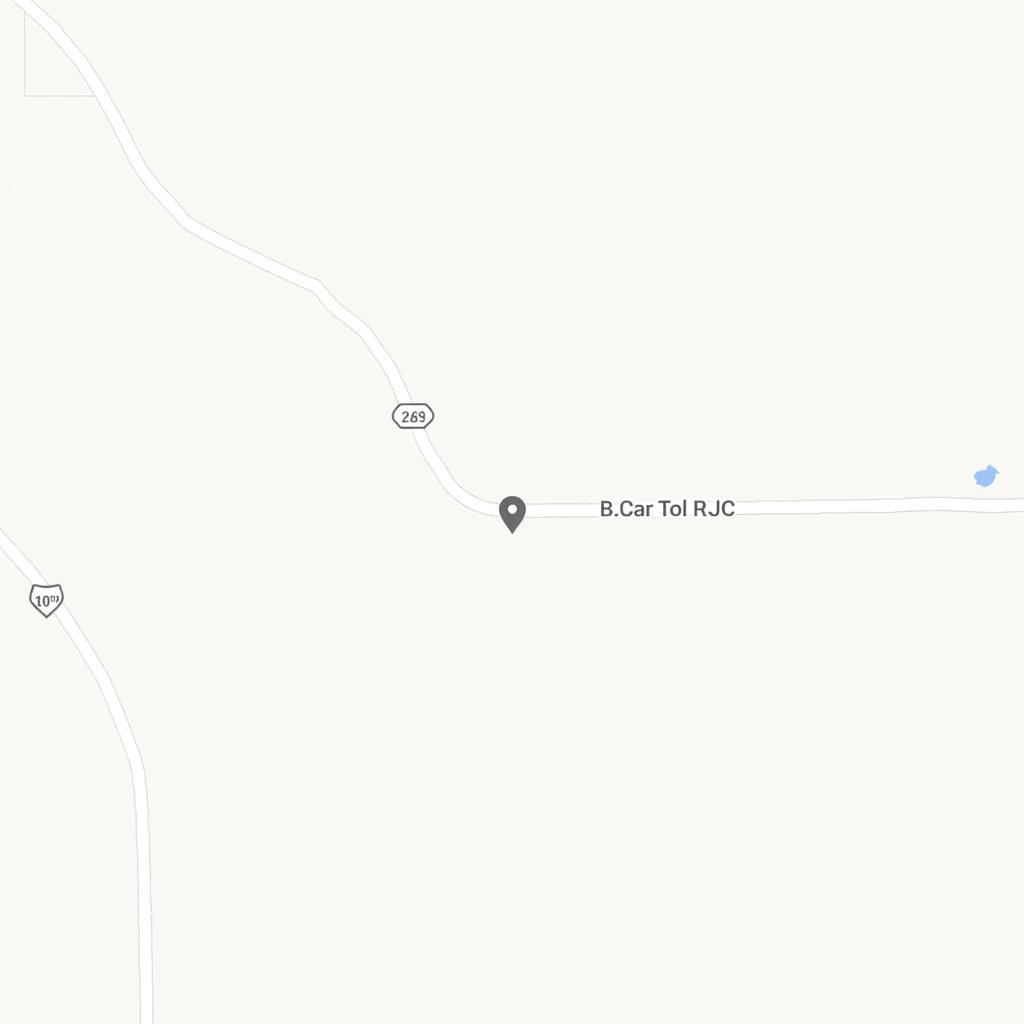 ScanToolUS Office Location
ScanToolUS Office Location
FAQ
-
Where can I download Toshiba hard drive diagnostic tools? You can often find them on the Toshiba support website or through reputable third-party vendors.
-
Are there free diagnostic tools available? Yes, several free software utilities provide basic diagnostic functionality.
-
What is SMART data? SMART stands for Self-Monitoring, Analysis, and Reporting Technology, providing crucial insights into the health of your hard drive.
-
What should I do if my hard drive fails the diagnostic test? Back up your data immediately and consult a professional for further assistance.
-
How often should I run diagnostic tests? It’s recommended to run diagnostic tests periodically, especially if you notice any performance issues.
-
Can diagnostic tools repair hard drive problems? Some tools offer basic repair functionalities, but major hardware failures often require drive replacement.
-
What are the common signs of a failing hard drive? Common signs include slow performance, unusual noises, frequent system crashes, and data corruption.


